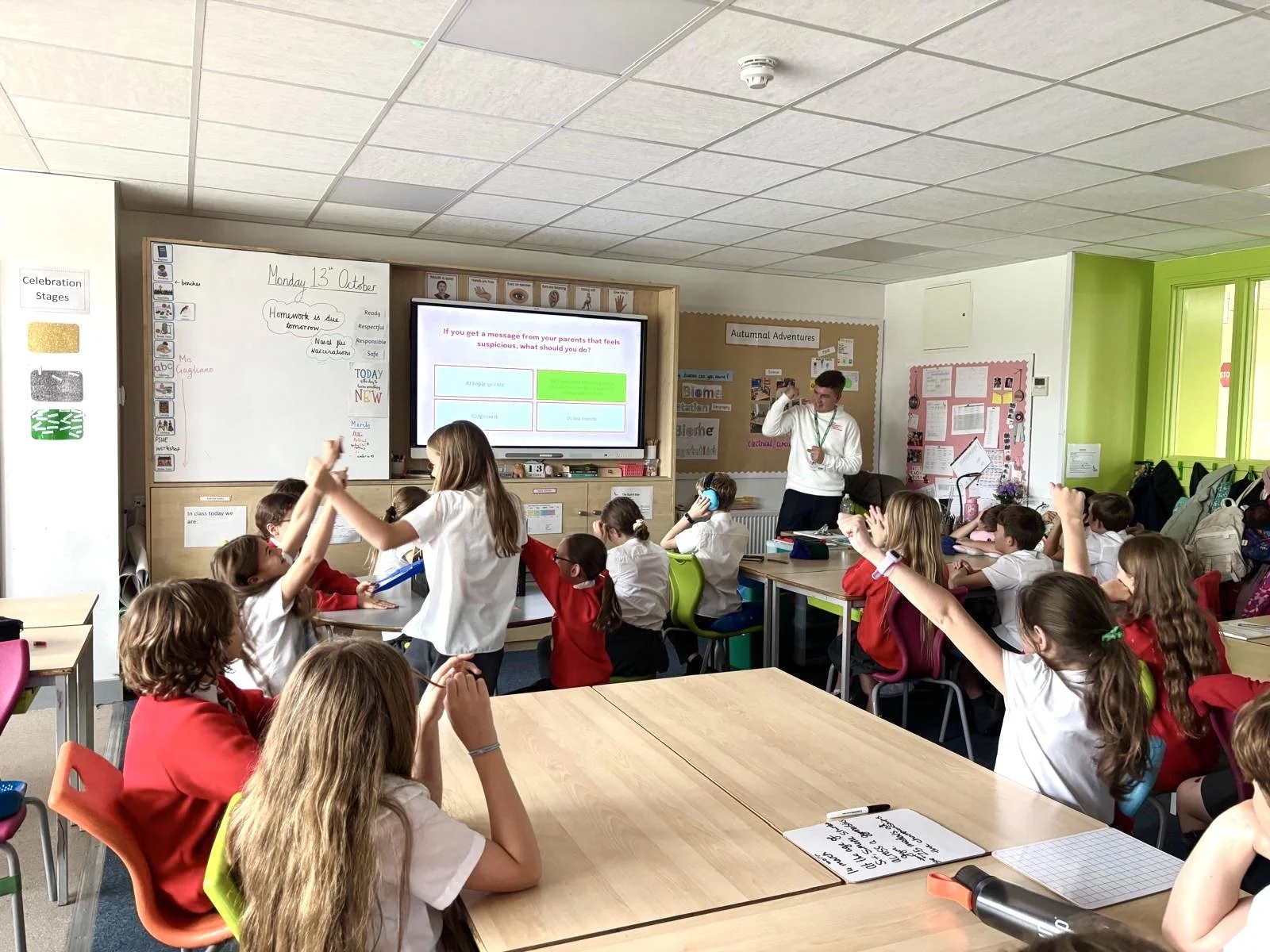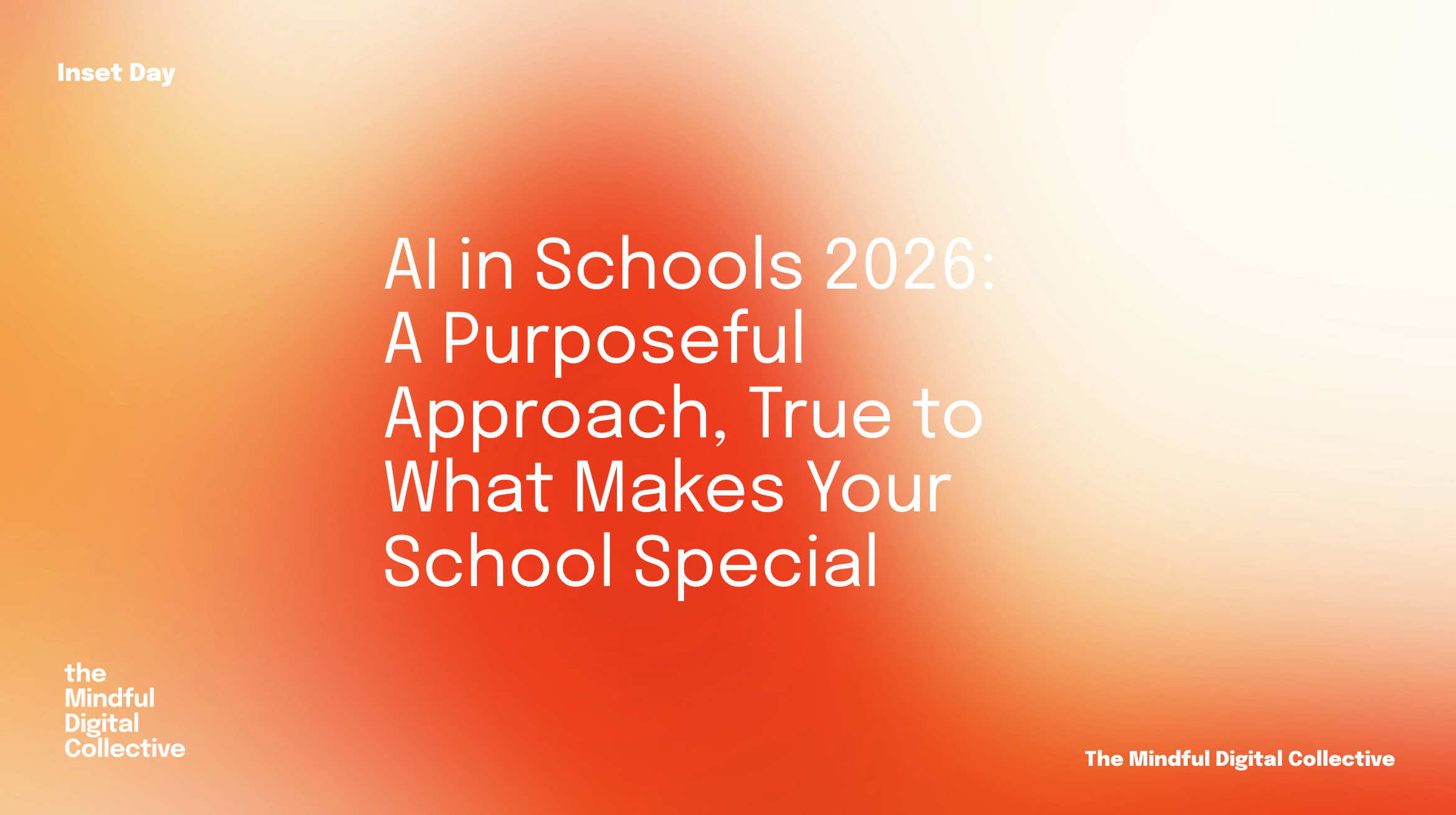Preparing the whole school for a digital world shaped by AI
Teachers need practical support, not more hype. Children need critical thinking, not just tech skills. We deliver AI teacher training, digital resilience workshops for children, and share weekly classroom ideas from teachers navigating this together.
What we offer
Digital Resilience Workshops
Boosts resilience, empathy and confidence
Covers key trending online topics
Delivered by CPD certified., trained facilitators
AI Teacher Training Workshops
Builds confidence in addressing emerging technology
Learn practical strategies for the classroom
Supports development through reflective discussion.
Primary schools
🚌
Primary schools 🚌
The challenges
Children today are surrounded by technology, but don’t yet have the skills to use it responsibly or understand the real-world challenges online it brings.
Teaching online safety, digital ethics, and responsible technology use can be challenging. Without real-life context, these topics can feel abstract, making it hard for children to see the relevance.
Parents often think it's the school's problem to manage technology use and the issues that come with it.
Parents feel under pressure because managing children's online lives is something we haven't experienced ourselves while growing up.
Our mission
In a world that's changing faster than schools and parents can keep up, it's becoming harder than ever for the school community to manage children's online lives.
We support the whole school community by delivering engaging experiences that genuinely resonate with children and spark meaningful conversations with parents.
By starting these conversations early, we empower children (and parents) not just to stay safe, but to confidently thrive in whatever comes next.
Teachers feedback
-
Emma Roberts - Head teacher
‘We're really grateful for everything Nick has done and can't wait to keep working with him. His dedication to promoting digital well-being and supporting educational initiatives is truly inspiring’
-
Greg Proudfoot - Teacher
"Lovely to have you in. The children really enjoyed it. You did a brilliant job landing some very important messages. Will highly recommend you to other schools"
-
Kat Thurtle - Teacher
Nick was great at creating a workshop that was specific to our students' needs and the issues they have encountered online. By using real life examples he immediately engaged the group and through interactive activities was able to address a multitude of areas in a relevant way. The workshop was adapted to the needs of our students with the language and terminology used explained in a clear way for them to understand. He was responsive to the questions they posed and all of the group came away having learnt new things.








